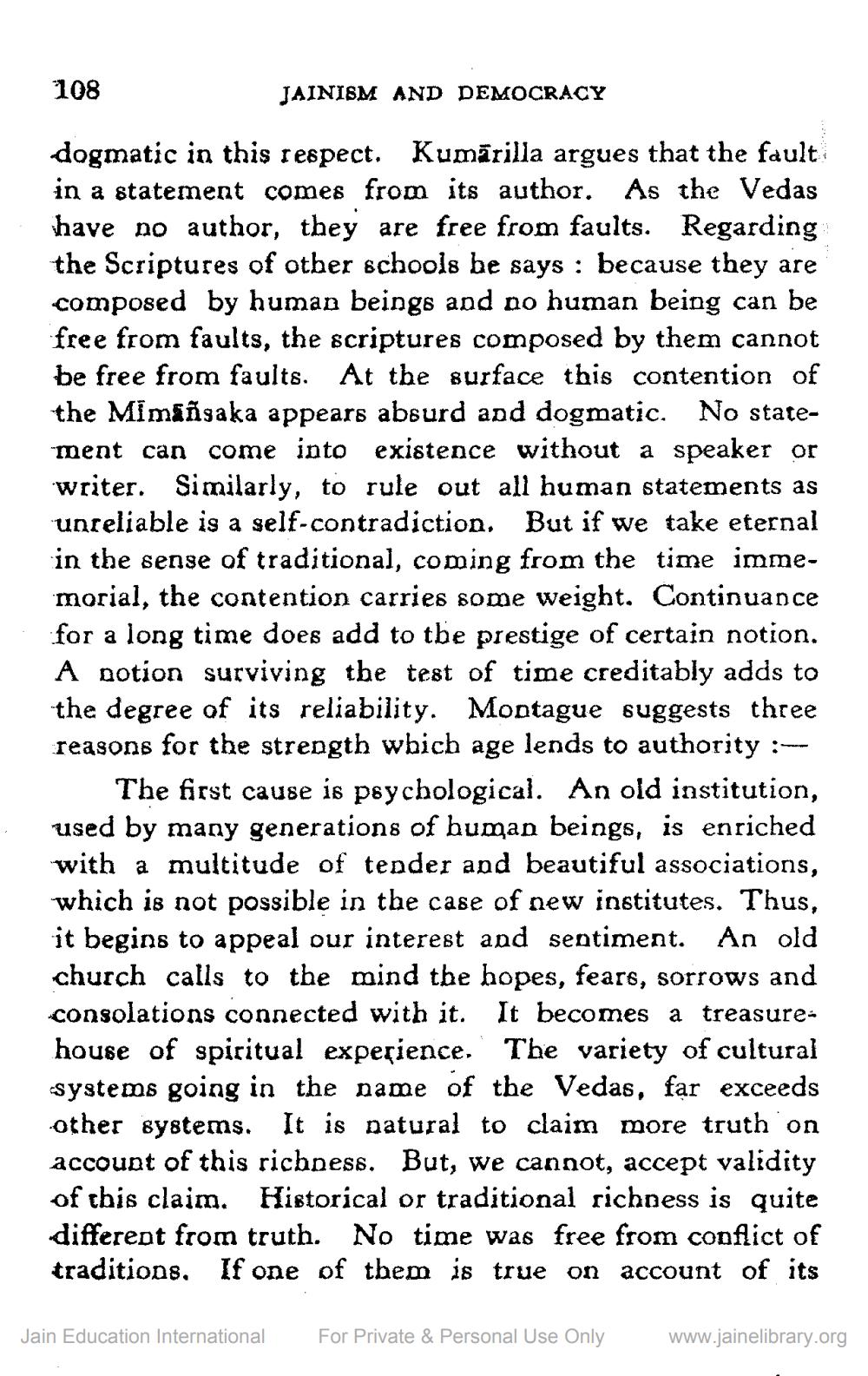________________
108
JAINISM AND DEMOCRACY
dogmatic in this respect. Kumārilla argues that the fault in a statement comes from its author. As the Vedas have no author, they are free from faults. Regarding the Scriptures of other schools he says : because they are composed by human beings and no human being can be free from faults, the scriptures composed by them cannot be free from faults. At the surface this contention of the Mimañsaka appears absurd and dogmatic. No statement can come into existence without a speaker or writer. Similarly, to rule out all human statements as unreliable is a self-contradiction. But if we take eternal in the sense of traditional, coming from the time immemorial, the contention carries some weight. Continuance for a long time does add to the prestige of certain notion. A notion surviving the test of time creditably adds to the degree of its reliability. Montague suggests three reasons for the strength which age lends to authority :
The first cause is psychological. An old institution, used by many generations of human beings, is enriched with a multitude of tender and beautiful associations, which is not possible in the case of new institutes. Thus, it begins to appeal our interest and sentiment. An old church calls to the mind the hopes, fears, sorrows and consolations connected with it. It becomes a treasurehouse of spiritual experience. The variety of cultural systems going in the name of the Vedas, far exceeds other systems. It is natural to claim more truth on account of this richness. But, we cannot, accept validity of this claim. Historical or traditional richness is quite different from truth. No time was free from conflict of traditions. If one of them is true on account of its
Jain Education International
For Private & Personal Use Only
www.jainelibrary.org




